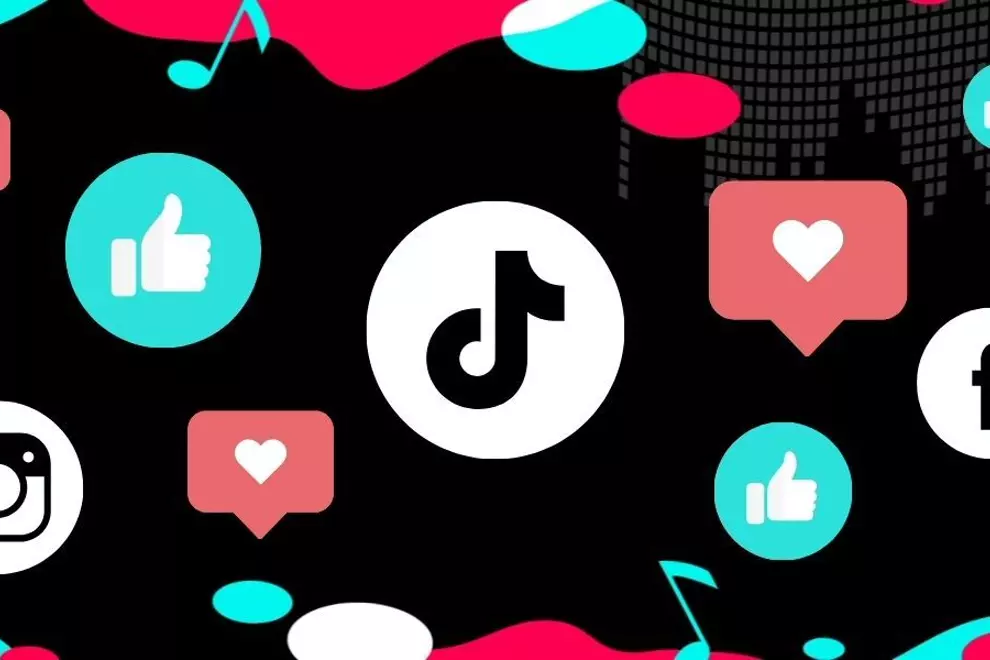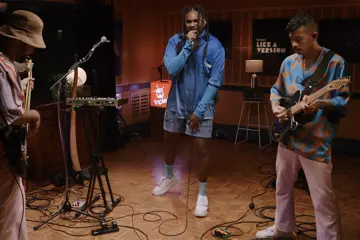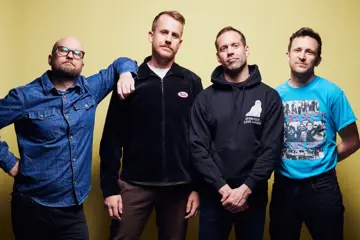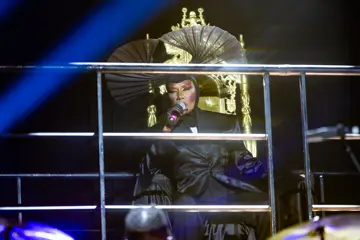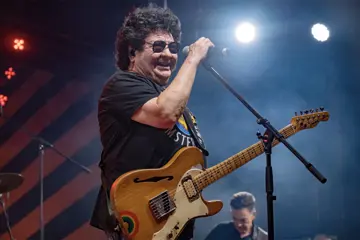Put it to anyone in the music world and they’ll likely agree that the game is changing – and not necessarily for the better. After all, as recently as a decade ago, the primary method for an artist to get their music out into the world was to hit the promo circuit. Often, this would include the standard run of interviews, live performances, radio appearances, and posters that would be pasted along the streets, boasting a new single, album, or tour. These days, the basic intent is still there, though the methodology has changed drastically.
Since social media slowly began to pervade our lives and become a ubiquitous presence in our day-to-day activities, so too has it changed the way that musicians conduct themselves. With an almost instantaneous link to their fanbase, the seemingly-archaic method of hitting the road to conduct an interview at radio stations has been replaced by a FaceTime call. Likewise, major announcements are replaced by Facebook statuses or tweets, live sets have given way to brief performances on Instagram Live, and promotional clips have been taken over by TikTok.
But as this trend of social media ubiquity continues to rise, it’s provided us with yet another hazard which threatens to upset the applecart that is creativity: digital burnout.
Just this week, US musician Halsey took to TikTok to explain that the release of their latest song had been halted by their record label, who claim that “a viral moment on TikTok” is needed to accompany (and thereby promote) its arrival.
“Basically I have a song that I love that I wanna release ASAP,” Halsey explained to fans. “But my record label won’t let me.”
Don't miss a beat with our FREE daily newsletter
“My record company is saying that I can’t release it unless they can fake a viral moment on tiktok,” they added. “Everything is marketing. I just want to release music, man. And I deserve better tbh.”
Halsey isn’t alone in this feeling either. Artists such as Charli XCX, Florence Welch, and FKA Twigs have all gone public with their disdain for the machine in which they’re forced to operate. While Welch took to TikTok to cheekily explain how her label had been “begging” for “low fi tik toks”, FKA Twigs has been noted as having almost changed her persona entirely, going from that of an almost reclusive, genre-defying enigma to that of an ever-present social media fixture in order to appease her record label.
“All record labels ask for are TikToks and I got told off today for not making enough effort,” the artist shared in a since-deleted video. Needless to say, it’s clear that much like the increasing pressures any worker would feel in their day-to-day job, the need to be constantly engaging and marketing yourself on social media is beginning to lead to increased burnout in the digital age for creatives.
Of course, Australian artists aren’t immune to this sort of pressure either. Recently, Melbourne alt-rock stalwarts Motor Ace returned to the fold, sharing their first new single since 2005 after their reformation four years prior. Having come up in the age where the traditional press circuit was the standard method of marketing, the group have found a need to ensure a frequent presence on platforms such as Facebook.
“We unfortunately or fortunately didn't stay in touch with audiences as we finished up in 2005, and then releasing music nearly 20 years later, it's not an easy task,” explains drummer Damo Costin. “We simply just jumped back in recently and needed to remind fans of the journey we were once on all together as artists and fans.”
Describing the process of staying in touch with the various algorithms across different platforms as “highly recommended for people who like to watch concrete dry”, Costin explains that while the change in technology has made it easier to stay in contact with fans, it’s become an almost lifeless entity in effect.
“It's now definitely less about having a personality and more about your 'entertaining ability' to use certain apps that offer creative bursts of rainbows and filters,” he explains. “Having a mini TV station in your phone can be very useful, but some of us, we have a life to live and no app will ever offer you a life experience.
“It's a new era now, no question, but to be fair having more human interaction with in-person radio and TV interviews, they were highly prized because they mostly happened in real time. They had an edge that felt real and genuine. There's an element now that a YouTube clip could be completely and utterly staged.”
Fellow Victorian rockers Kingswood have also experienced the need to shift their marketing over to various social media platforms, though in their early days, it almost felt as though the writing was on the wall that the digital age would be the one they found their career rooted in.
“I remember we burnt CDs of our demos to hand out at our very first shows,” recalls vocalist Fergus Linacre. “And the way we got people to shows in Melbourne was through word of mouth. Without radio play there wasn’t really a way to reach a bigger audience. Myspace had long died and Facebook was starting to make an impact.
“The good thing was if you posted on Facebook it actually went out to all your followers. Now you have to pay to reach your own people.”
Despite rising to fame against a backdrop of virality, Linacre concedes that the intrusive nature of social media is something that he and the rest of Kingswood have had to try and find a way to work into their professional lives, even if it does feel like an uncomfortable invasion of privacy at times.
“It’s genuinely something we struggle with,” he admits. “We didn’t grow up with Instagram or this notion of sharing moments of your life with people. There have been times when we have tried to commit to sharing more, but to be honest it is not in our nature to do so. We are pretty private people.
“If we are in the studio or getting a little loose after a show, the last thing we want to do is take a phone out and start filming.”
However, for a band like Kingswood, the experience has been something of a double-edged sword. Having had their Juveniles album tour cut short by the advent of COVID in March of 2020, the group were forced to adapt, switching their focus to the likes of Instagram as a means to stay connected with fans by way of live performances and conversations, but to also market their live shows once they made a return to the stage.
“Throughout COVID we genuinely missed our fans,” Linacre notes. “Playing shows and hanging out with our people was never something we took for granted, but we were looking for ways to fill the void, so when the mood struck us we would go live and chat to fans.
“There is an element of feeling the need to stay in touch for professional benefit but we are not ones to force it upon ourselves.”
Still though, newer artists have found themselves in an unenviable position where social media marketing is less of a nascent expectation, but rather an intrinsic part of the creative process.
In late 2019, Mount Gambier outfit Chelsea Manor found themselves playing their debut show as part of triple j’s One Night Stand. This highly-publicised first show saw the group shouldered with not only the sort of expectations that come with any triple j-approved band, but also soon saw their momentum halted by COVID, necessitating a shift to digital to continually curate engagement.
“It became really difficult for us as a band because we were definitely centered around live shows,” explains vocalist and guitarist Bianca Hendy. “It’s a blessing and a curse at the same time, because you can reach people across the globe that you couldn't even dream that they would be hearing your stuff.
“On the other side of it, you watch a lot of content or you're seeing a lot of it and you feel like there's a need to just constantly put it all out there because of the algorithms and how many views something could get.”
Although this pressure to “continuously engage and feed that algorithm to make it happy” can very quickly compromise the level of fun that creating music can provide, Hendy notes that these musicians (who are musicians first and foremost, not digital content creators) can help assuage this pressure by blazing their own trails.
“There's always people that step outside of the box, and when there seems to be things done a certain way, there's always someone who comes along and does it differently, and then it shifts again,” she explains.
“As an artist, try different things and if you like it and it works for you, continue to do it. If it doesn't work for you, don't do it, and try not to take on the pressure of feeling that constant need. What works for you won't always work for someone else.”
Despite an almost-overwhelming lamentation in regards to the constant need to market oneself via social media, more and more artists are finding themselves affected by this newfound notion of digital burnout.
Though it remains to be seen if it will be treated as seriously as any other workplace hazard, it looks to be a sad reality for any artist wishing to successfully navigate and promote themselves in the digital age. As Motor Ace look at it though, it’s important to remember that it’s simply a necessary evil that goes along with the privilege of being able to do what they love.
“It feels like it's a job that we have no experience in,” Costin concludes. “There's a huge fear factor because it's completely uncomfortable. Nothing about it feels natural.
“We have to remind ourselves we are here to play, create, record, and play – anything else is a massive bonus."

